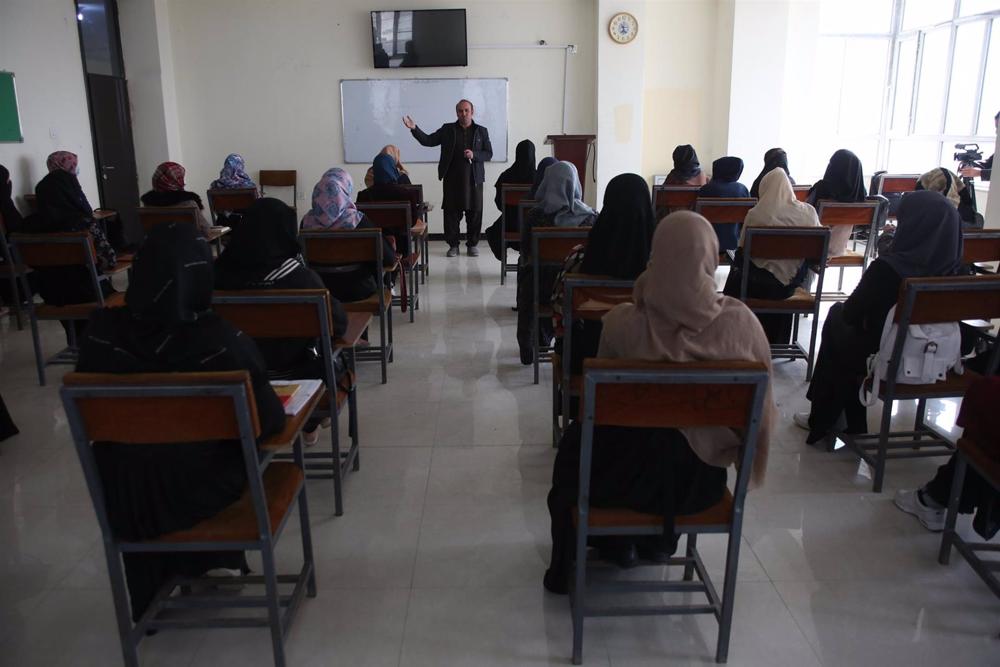
United Nations Secretary-General António Guterres on Tuesday called on the Taliban to end «all discriminatory laws and practices» that prevent access to education for girls in Afghanistan.
«I call on the Taliban to withdraw the outrageous and counterproductive ban on access to secondary and higher education for girls and women in Afghanistan,» Guterres said in a message on his Twitter account on the occasion of World Education Day.
«Now is the time to end all discriminatory laws and practices that undermine access to education,» he said, after stressing that «education is a fundamental right and the pillar of societies.»
The Taliban, who seized power in August 2021 after taking over Kabul, announced in December that they were extending the ban on classroom access for women to universities, after months of suspension in secondary education.
The Taliban authorities have faced criticism over the closure of schools and the exclusion of female students from them, amid a raft of discriminatory measures against women that keep them away from their jobs and govern aspects of their daily lives.
For its part, the United Nations Office for the Coordination of Humanitarian Affairs (OCHA) warned on Monday that Afghanistan «faces an unprecedented humanitarian crisis with a very real risk of systemic collapse and human catastrophe».
«In addition to unimaginable human costs, this humanitarian crisis is rolling back the gains of recent years, including on women’s rights,» the agency stressed, recalling that the collapse of Ashraf Ghani’s government led to the suspension of direct international aid.
In this regard, it stressed that 28.3 million people, about two-thirds of the population, will need urgent humanitarian aid in 2023 to «survive», at a time when the country is entering its third consecutive year of drought-like conditions.
OCHA said 17 million people will face acute hunger this year, including six million people at emergency levels of food insecurity, putting them «one step away from famine.»
«A deterioration is expected during the first quarter of 2023 due to the simultaneous effects of winter and the lean season, high food prices, reduced incomes and rising unemployment, as well as the continued economic downturn,» it argued.
The number of people in need of humanitarian aid has increased from 24.4 million people in 2022 and 18.4 million in 2021. OCHA therefore called for «substantial investments» in water infrastructure, sustainable agriculture, gender policy reform and macroeconomic stabilization.»
Source: (EUROPA PRESS)






